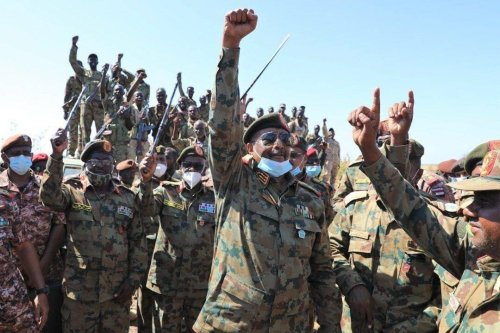The Sudanese army has expressed willingness to return to the negotiating table after it suspended its participation in the Jeddah negotiations.
It also demanded from the Saudi-US negotiators to prevail on the rival Rapid Support Forces, RSF, to vacate residential areas, hospitals, public institutions, service facilities, and police stations, as previously agreed.
The army announced on Friday that it has made proposals to enforce the ceasefire accord on Thursday. However, the Saudi-US mediation team ignored them and closed the negotiations without a response.
Recall that the White House said on Thursday that it will impose sanctions against key defense companies and people who “perpetuate violence” in Sudan as the warring sides failed to abide by a cease-fire agreement.
New visa restrictions apply to officials from the Sudanese Armed Forces and the Rapid Support Forces and leaders from the former government led by Omar al-Bashir who the United States said are “responsible for, or complicit in, undermining Sudan’s democratic transition,” according to the State Department.
In her part, the Treasury Secretary Janet Yellen said through sanctions, the US will be cutting off key financial flows to both the Rapid Support Forces and the Sudanese Armed Forces, depriving them of resources needed to pay soldiers, rearm, resupply, and wage war in Sudan.
Fighting erupted in mid-April between the Sudanese military, led by Gen. Abdel-Fattah Burhan, and the Rapid Support Forces.
According to a Sudanese doctors’ group, the violence has killed at least 866 civilians. The actual casualties are expected to be far higher than the reported figures.
On May 21, Washington and Riyadh facilitated a cease-fire to pave the way for the delivery of humanitarian aid and the restoration of key services. Since the battle began, there have been seven announced cease-fires, all of which have been breached.

